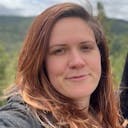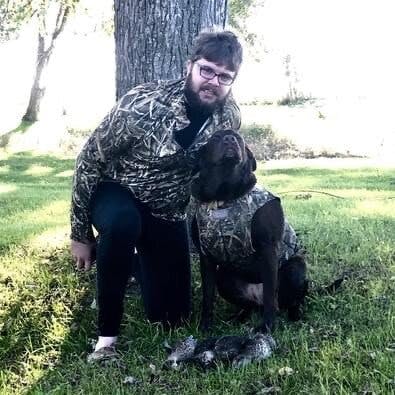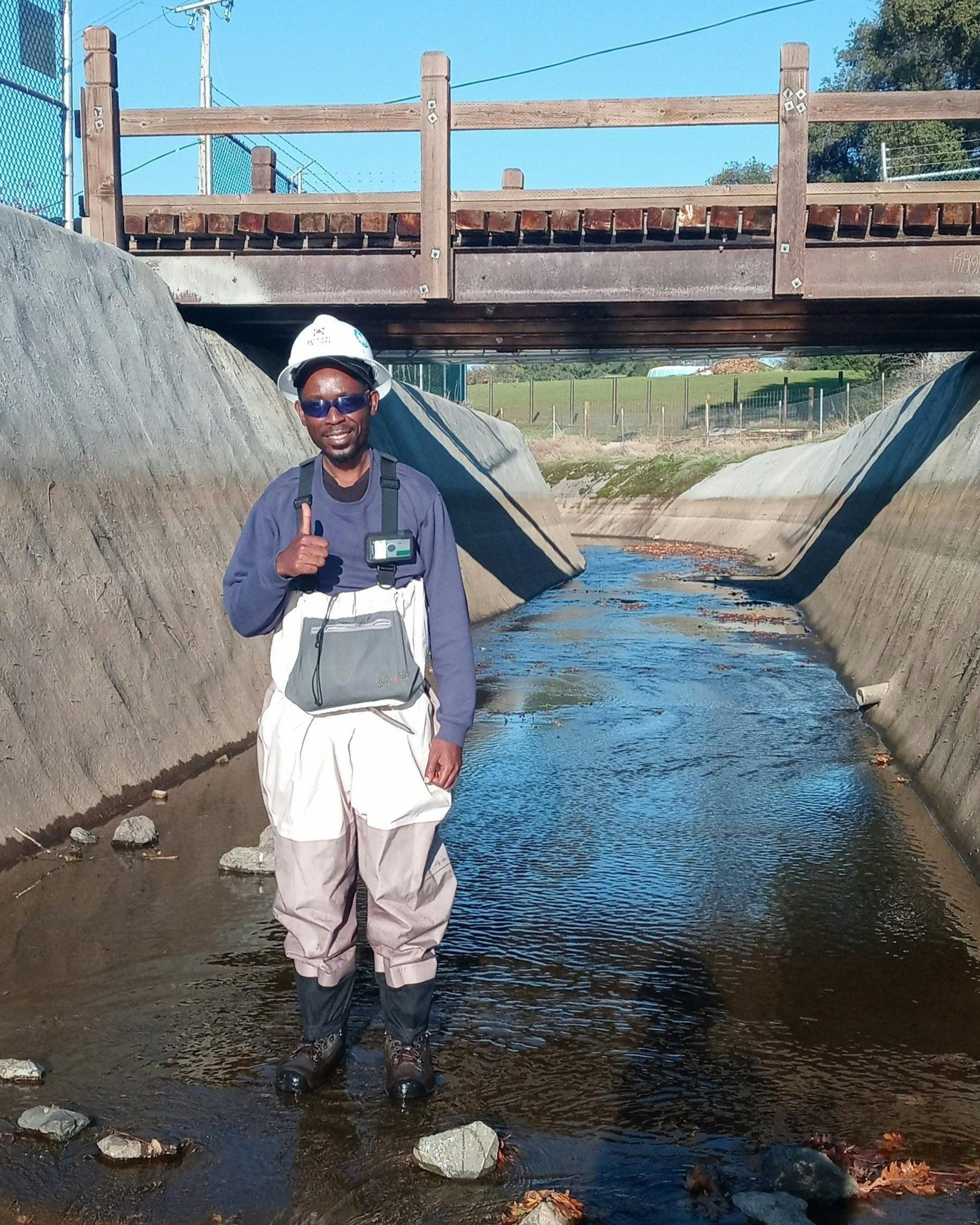Go With the Flow: New Hires Edition

Kate Souza
September 5, 2023 • 6 minutes
This month's edition of Go With the Flow carries a delightful twist - the arrival of new employees at our firm! Our dynamic expansion calls for a celebration of the addition of Gareth Smith, our esteemed CAD Technician, who carries the distinction of being our first full-time hire in this role. Hailing from the midwest, Gareth brings forth a potent blend of vigor and expertise that invigorates our expanding team. Additionally, we welcome Julius Ratemo, who has joined our engineering team as a Hydraulic Modeler. Julius is diligently working towards obtaining his PE license while simultaneously fortifying his skillset. Both Julius and Gareth are extensively involved in aquatic projects across California.
Gareth Smith

How did you get into the environmental services sector?
I have a BS degree in outdoor conservation and got my first job with the Natural Resource Conservation Service as a Soil Conservation Tech. Growing up in a farming community I saw the need to conserve our soil and water resources for future generations. I also grew up hunting and saw the need to conserve our wildlife. The combination of the two is why I made my decision to get a BS in outdoor conservation. As I started my career I learned a lot about soil and water conservation which I still carry with me today.
Where are you from and did it have an affect on your career choices?
I am from a small town called Stanhope, IA. It is mainly a small farming town surrounded by corn and soybean fields so I grew up working on a farm. Working on a farm teaches you hard work and gives you a strong work ethic. It also shows you why our environment is so important as without it we could not feed the globe. This is why it is important to conserve our natural resources for future generations. I also grew up hunting which gave me respect for animals and where our food comes from. Hunting is an important part of conservation as it helps control the wildlife populations and keeps numbers in check. It is also a very valuable food source for many Americans including myself as I grew up eating deer, duck, pheasant, quail, and goose.
What hobbies do you have?
I enjoy ice fishing trips in the Midwest with family. I've been to Minnesota, South Dakota, and Wisconsin. I take part in ice fishing tournaments and have come close to winning. I'm an outdoor enthusiast who also loves duck hunting. I mainly hunt in Iowa but hope to go to Arkansas one day. I run a small farm with cows, goats, and chickens. Butchering a cow provides food for our family for a year. (Pictured: Gareth and his dog, Wrangler).
What are your goals for this next year?
I want to become more proficient in AutoCAD and advance my knowledge of the program which will allow me to do more interesting work with FlowWest. I want to be able to help conserve our environment and native wildlife to the best of my abilities and look forward to the new adventures that I will embark on with FlowWest.
What is something that everyday people can do to help their local watershed?
Being mindful of the amount of water you use and where that water comes from. Also from a farming view conserves the soil and keeps harmful chemicals from reaching water sources. In southern Iowa most of our drinking water comes from Rathbun Lake. It is important for people to realize that even the smallest act of conservation can have a big effect on water quality.
Julius Ratemo

How did you get into the environmental services sector?
During my undergraduate studies in Civil engineering, I found myself increasingly drawn to water resources and environmental sustainability. Courses in water management, flood control, and water quality assessment grabbed my attention. As a result, I saw them as opportunities to blend technical engineering skills with real-world solutions for critical issues like water scarcity and environmental protection. This passion steered me towards the environmental services sector, where I can apply my expertise in water resources to make a meaningful impact.
Where are you from and did it have an affect on your career choices?
I am originally from Kenya. Growing up in the country, education was often seen as a way out of poverty, and the prestige associated with engineering made it a highly respected choice. However, my motivations went beyond the local context. While I was certainly influenced by the prestige that came alongside the career, I was also moved by water scarcity and environmental challenges affecting communities in Kenya and globally. This was what fueled my passion for Civil engineering, specifically in water resources. I see engineering not just as a prestigious career but as a platform to address urgent environmental problems around the world.
What are your goals for the next year?
I am hoping to gain more experience in the field of water resources engineering. As a result, I intend to be more proficient in working with hydraulic tools like HEC-RAS and civil engineering software design software such as AutoCAD civil 3D, as well as gaining field experience to see how designs come to fruition.
In addition, I am working towards obtaining my Professional Engineer (PE) license. The license is a significant milestone that will not only elevate my professional credibility, but also allow me to take on greater responsibilities in the water resources sector.
What hobbies do you have?
I enjoy hiking. So far, I have explored trails around Yosemite, Auburn, South Lake Tahoe, the Bay Area, and Colfax. Each hike offers a unique connection to the natural environment, which resonates with my interest in environmental conservation. I am also keen to take this hobby to trails beyond California someday.
In addition to hiking, I love music. I have previously sung bass and baritone in several Christian acapella groups, and I also play the guitar. Music is a source of relaxation for me after a busy day at work. Whether I am strumming chords or harmonizing in a group, these experiences offer a fulfilling and separate space from work.
What is something that everyday people can do to help their local watershed?
Be stewards of your local environment. Little things matter a lot since they accumulate significantly over time. For example, simple practices like avoiding dumping trash and harmful chemicals in home and street drains, planting native plants that don’t need much water, capturing rainwater, and staying informed about local water issues can go a long way in not only preserving watersheds, but also conserving the environment.
Each month, join us on a journey through the diverse expertise at FlowWest in our blog series, 'Go With The Flow.' Explore the stories and insights from our team of multi-disciplinary experts, including geomorphologists, water resources engineers, data analysts, environmental planners, and web developers, as they share their experiences and contributions to environmental consulting.
